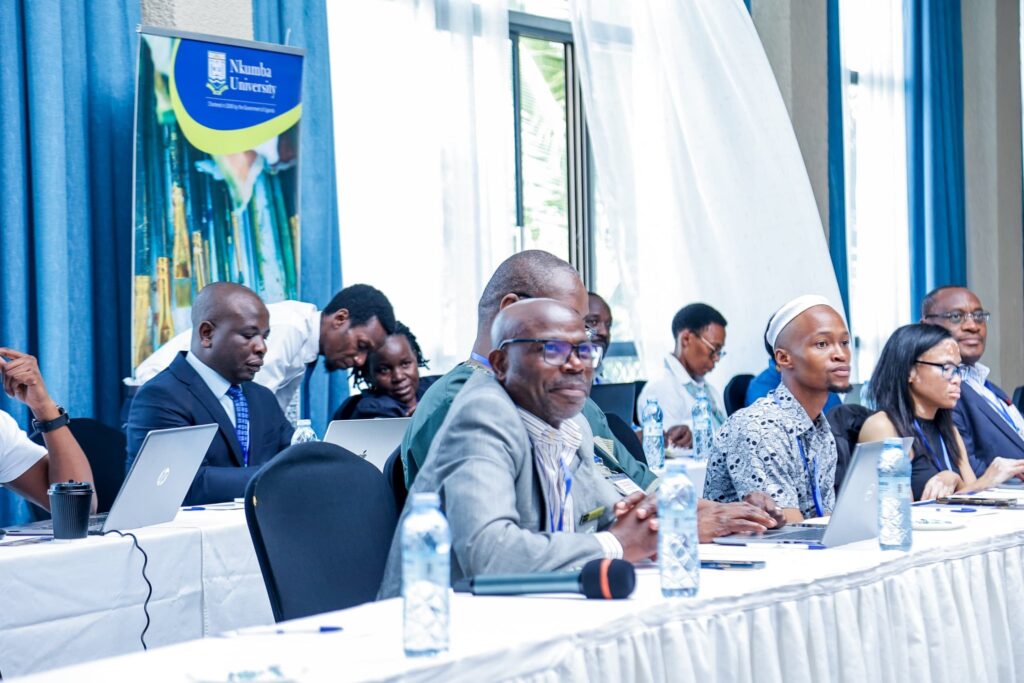As discussions at the International Conference on Governance, Leadership and Socioeconomic Transformation continue at Protea Hotel, Entebbe, Prof. Francis Kasekende has added his voice to calls for practical relevance in academic research, urging scholars to ensure their work addresses real-world organisational challenges.
Delivering a presentation on the topic “High Performance Work Systems and Employee Loyalty in Audit Firms in Uganda: A Mediated Model of Knowledge Development,” Prof. Kasekende challenged academics to re-evaluate the impact of their scholarly efforts in professional settings.
“Yes, we study abstract issues,” he said, “but at some point, we must ask ourselves, how does this research translate into practical value for the organization? What reality does it bring to the workplace?”
He emphasized the importance of grounding academic knowledge in contextual understanding. “We operate in an environment that must inform our studies. At the end of our research, we must reflect and ask: does this type of teaching or research contribute meaningfully to the organisation? If it doesn’t improve the work environment or the value delivered, then we must rethink our approach.”
Prof. Kasekende’s presentation examined the link between high-performance work systems and employee loyalty, especially within Uganda’s audit firms, using knowledge development as a mediating factor. He stressed that for research to be truly transformative, it must not only generate knowledge but also support systems that improve organisational performance.
“If we say our bodies of research are to guide organisational growth,” he noted, “then let us not shy away from interrogating whether they are achieving this purpose. If they are not, we must ask, why not?”
He also pointed to technological readiness and innovation within governance frameworks, expressing optimism about advancements like the GTE online application system. “We are ready for that kind of social justice,” he remarked, alluding to the digital transformation agenda that complements the conference’s central themes.
Prof. Kasekende’s address follows an earlier keynote presentation by Prof. Benon Basheka, who called for transformative governance and digital resilience as pillars for Africa’s socioeconomic progress. Prof. Basheka urged delegates to embrace new policy frameworks that reflect today’s digital and governance realities.
Organized by Nkumba University (Uganda) in partnership with Mzumbe University (Tanzania) and the University of Johannesburg (South Africa), the two-day international conference has attracted academics, policymakers, and practitioners from across the continent to deliberate on the future of governance, leadership, and development in Africa.
As the conference proceeds, participants continue to explore critical themes such as institutional capacity, service delivery, digital inclusion, and the role of research in shaping governance practices.



















Discussion about this post